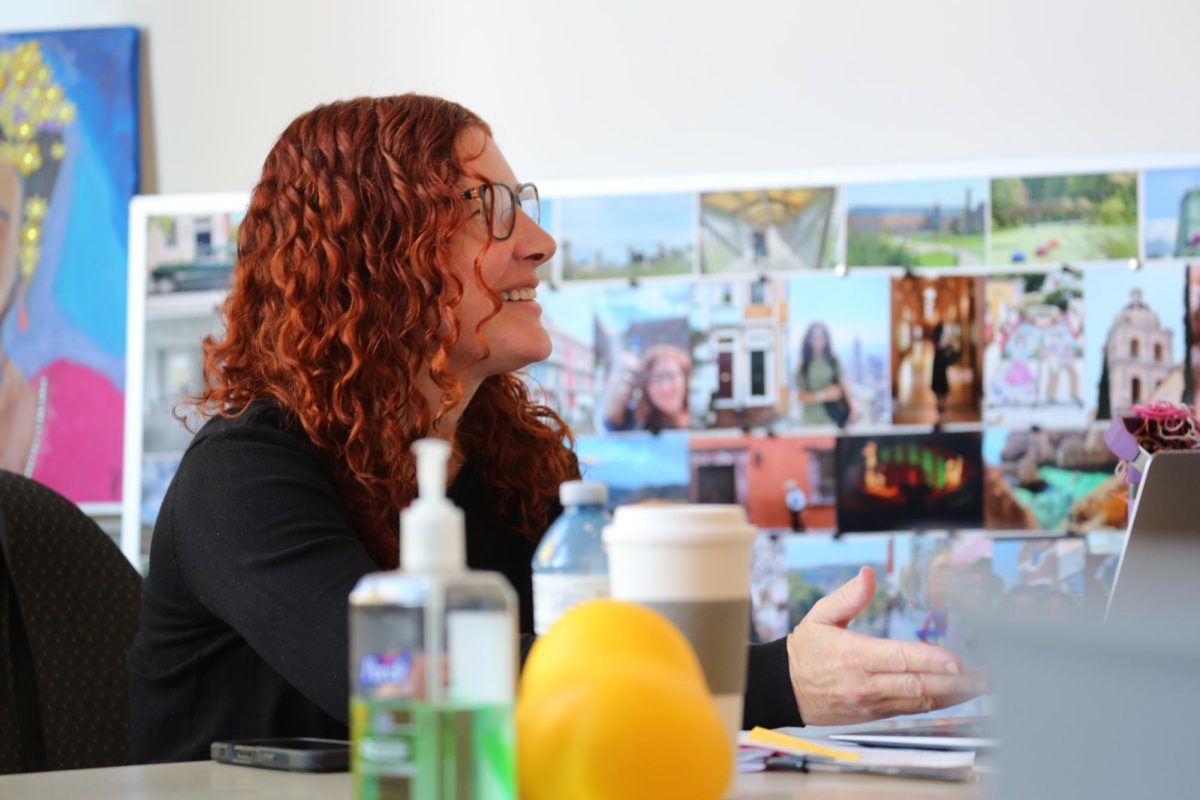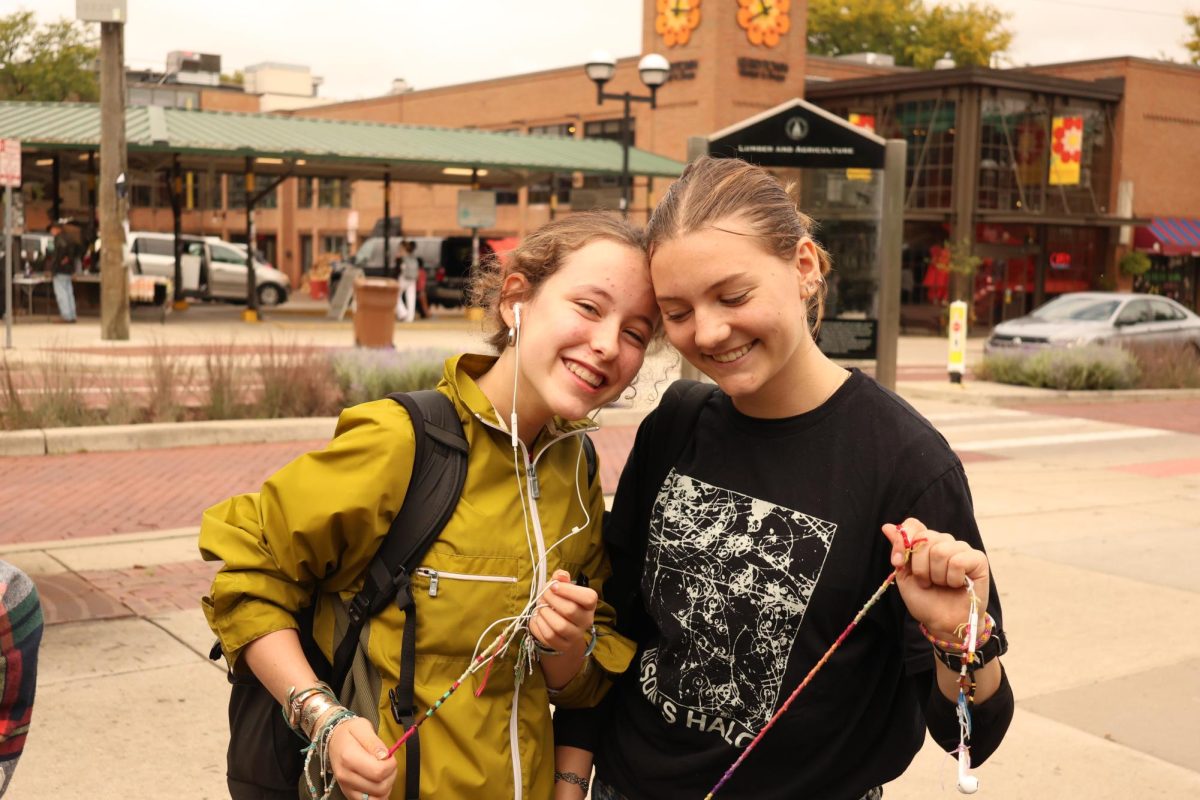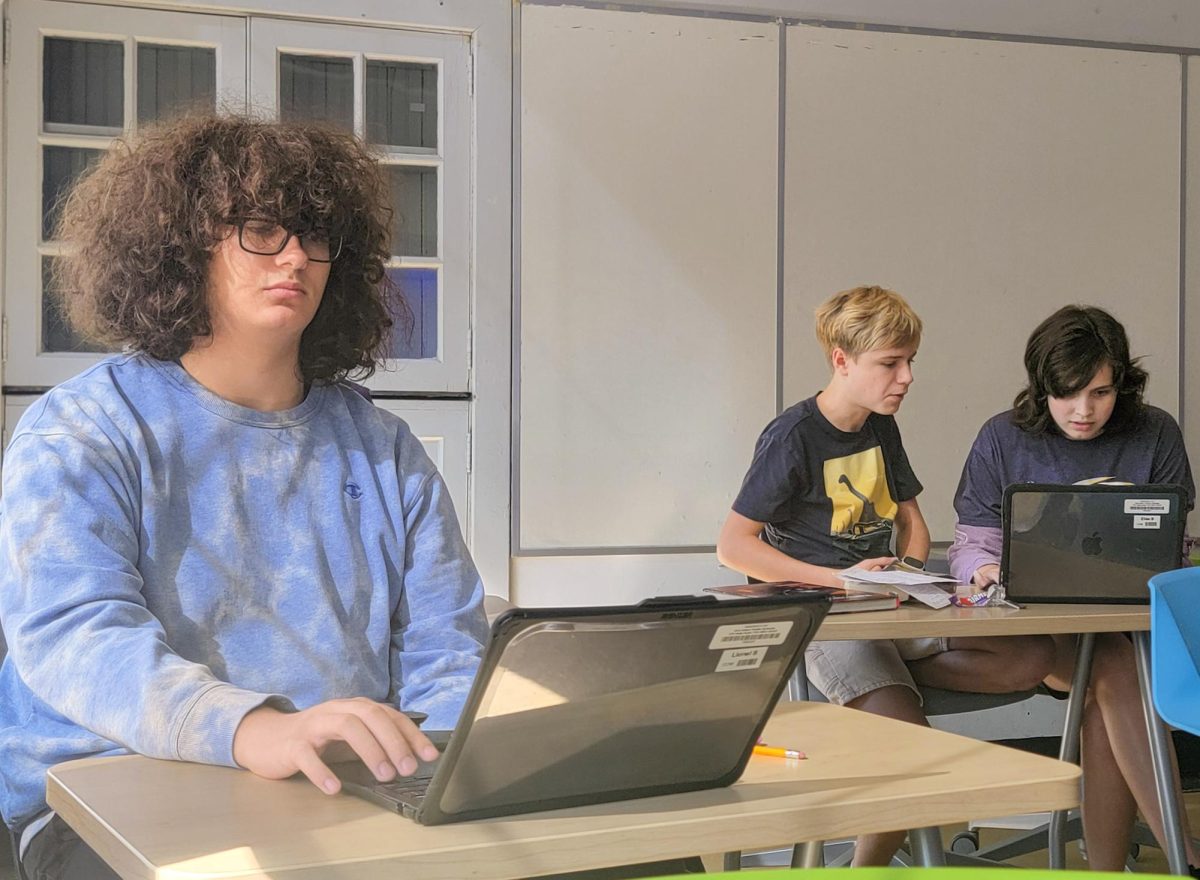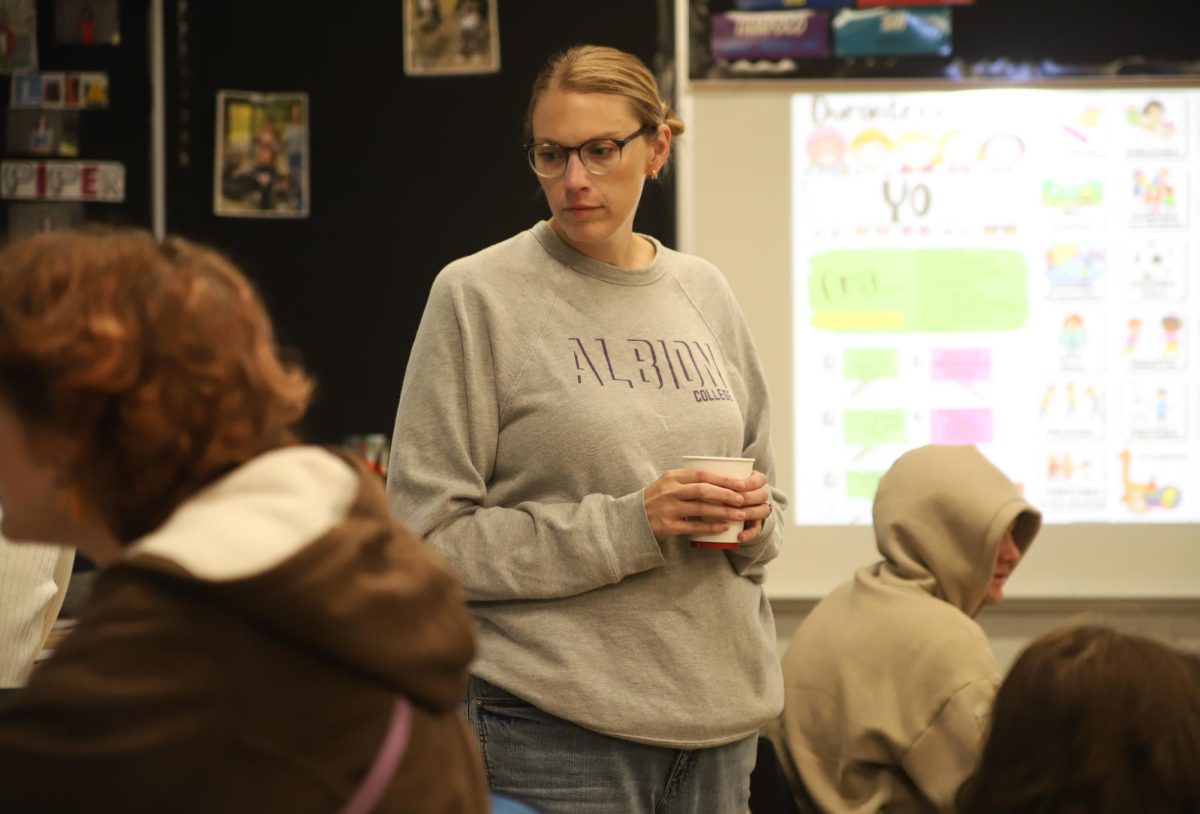Lynn Perry is not your average Academic Support teacher. Her story expands far beyond room 212. Perry has taught at a segregated school on the west side of Chicago, a school in California, Scarlett Middle School in Ann Arbor and even a county jail in Chicago.
In the academic support class at CHS, students work on whatever skills they are missing. Perry helps guide them through the journey.
The classroom also acts as a space for students to take tests if they have testing accommodations, or occasionally, a quiet space for students to do their homework during 7th or 8th block. Perry also helps sometimes with Michelle Yager’s Algebra One class and Becky Brent’s Speech and Communication class.
“I never really thought I would ever become a teacher,” Perry said. “And then, when I went to college, before even becoming a teacher, I had to take English 1 before English 101.”
Perry studied for hours in college and completed every assignment, yet somehow always failed. But then, everything changed. She had one teacher who helped her develop better comprehension skills.
“So, I didn’t just memorize everything, but it had meaning,” Perry said. “After that, I was on the Dean’s list every semester throughout college, and I wanted to help others do the same. So I didn’t have self-confidence or anything, because I didn’t think I would be good for college. I was going to drop out, but then, because of her, I loved learning and reading and everything else.”
After Perry developed her newfound confidence in school, she wanted to help others do the same. This is a main contributor to why she has such a complex teaching background with years of experience.
“I taught at Scarlet Middle School for a while, and before that, I taught on the west side of Chicago,” Perry said. “I taught English over there, psychology, sociology and human sexuality. Before that, I taught in Cook County Jail in Chicago, became a 24-year-old handmaidman.”
“Before that, I taught in California, and I had my own English classroom. Before that, it was my very first time teaching in a behavioral specialist room.”
When Perry worked as a teacher in a jail, she felt as if it could be compared to something out of a movie where no one was listening, and everyone was standing up. It was extremely hard for her, but Perry kept persisting.
“I wanted to get through and make relationships with students,” Perry said. “After that, it was amazing.”
Perry wanted to teach at Community after hearing about it for the first time.
“Other high schools would have taken me, but I said that if there was ever an opening at Community, I wanted to [work there],” Perry said.
“I liked the choices that everyone’s kind of a young adult and treated like one, and I liked the creativity and just the openness,” Perry said. “I thought it had a different student population. I heard it was not like other schools, and people just accept whoever you are and that you’re growing here too.”
In the west side of Chicago, Perry taught at a segregated school that was made up entirely of African American students. She noticed that most of her students had little to no experience talking to anyone of a race other than their own. This made it especially hard for these students to go to college and meet people of different ethnicities and backgrounds, being that there was stigma surrounding race at the school.
In an attempt to help these students form connections, Perry held a Humans of New York-like assignment, where students had to interview random people on their campus.
“We went to the UIC campus where they interviewed people of different backgrounds and got to know them,” Perry said. “Besides police officers, teachers or fast food workers, they didn’t really ever talk to anyone outside of the race.”
The school that these students attended appeared to be a low-income education center. Students only had four electives for all years of high school, which meant everyone ended up repeating the same electives throughout their high school years. Perry recognized this problem and decided to do something about it.
“When I created the psychology, sociology and human sexuality course, that’s where they got to do these things. We had taught our juniors, so when they were seniors, they got to be like a peer to the freshman,” Perry explained.
“Once a week, the seniors would go with the freshmen and teach them things like consent,” Perry said. “If they had friends with problems or different things going on, we had actual teachers who had to get certified to become peer educators and helped all the freshmen. That’s what I’m most proud of, coming up with that class.”









